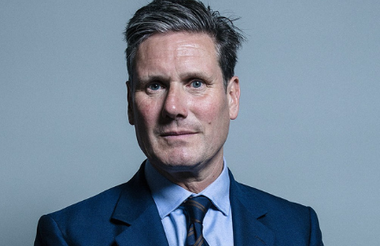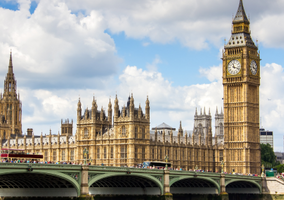The Labour Party has pledged to work in partnership with civil society on a range of issues if it wins the upcoming general election.
In its manifesto, published yesterday, the Labour Party said it would partner with civil society on protecting the environment, creating stronger animal welfare and seek advice from the sector on its plans for growth.
It also says the party would plan to return aid spending to 0.7% of gross national income (GNI) and repeats a pledge to remove a VAT exemption and business rates relief for private schools to invest in state schools instead.
Voluntary sector organisations welcomed some parts of the Labour manifesto, but criticised a lack of detail and reference to protesting rights.
Meanwhile, the Green Party’s manifesto, also released this week, included a pledge to raise aid spending to 1% of GNI.
CFG: ‘Little detail’ on partnership pledges
The Charity Finance Group (CFG) welcomed the Labour Party’s partnership pledges but said it would like more detail on how it plans to develop the relationship between the sector and the state.
Clare Mills, deputy chief executive of CFG, said: “It is particularly positive that there is specific recognition that civil society – a sector employing around a million people, and hosting hundreds of thousands more people through volunteering – has a key role to play in helping to build a stronger economy.
“However, there is little detail on how Labour would work to develop their relationship with civil society, to ensure that our sector's expertise and connections across all communities could contribute to social change.
“We will be looking to develop a constructive relationship between our sector and whoever forms the next government.”
Aid budget commitment needs ‘concrete details’ says Bond
Identical to the Conservative Party’s pledge in its manifesto, the Labour Party said it would return aid spending to 0.7% of GNI “when fiscal circumstances allow”.
Gideon Rabinowitz, director of policy and advocacy at NGO umbrella body Bond, said: “We welcome the commitment to restoring the UK aid budget to 0.7% of gross national income, but concrete details and realistic timelines are essential to make this commitment meaningful.
“Any incoming government should commit to urgently increasing the UK aid budget and target places where it is most needed, focusing on poverty alleviation in lower-income countries.”
SMK: Lack of reference to civic space is disappointing
The Labour Party manifesto does not include reference to protest laws, which civil society groups have campaigned against.
Sue Tibballs, CEO of the Sheila McKechnie Foundation, said: “There is much to welcome in Labour's manifesto including some measures to strengthen our democracy.
“But the lack of any reference to the importance of civic space – or civil society, even – is disappointing given how constrained and threatened it is.
“We would have liked to see some commitment to upholding freedom of speech and association, including the right to protest, as well as recognition of the role our sector plays in driving reform not just providing services. We will continue to push for this in our ongoing conversations.”
Green Party pledges to remove charitable status of private schools
The Green Party pledged to remove charitable status from private schools if it were to win the general election on 4 July.
It said it would increase spending on the international aid budget to 1% of GNI, above the previous 0.7% level, by 2033.
The party pledged to scrap legislation that “erodes the right to protest and to free expression” which included the Police, Crime, Sentencing and Courts Act 2022 and the Public Order Act 2023.
On social care, it committed to investing £20bn per year to address the “social care crisis” and to increase pay rates and a career structure for carers.
It also pledged to increase Universal Credit by £40 a week and abolish the two-child benefit cap.












